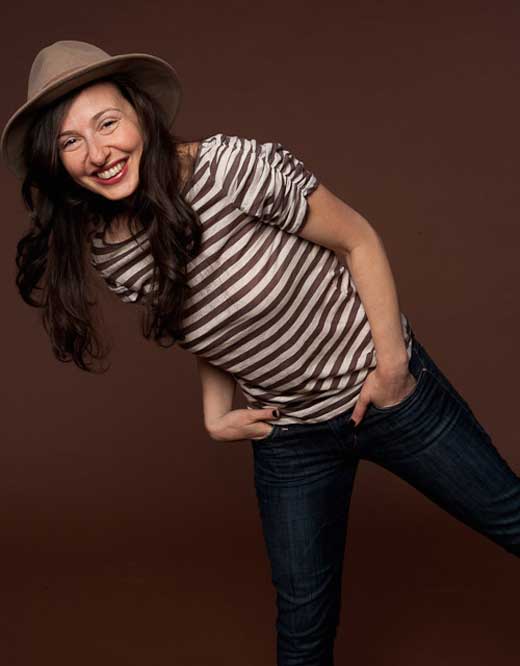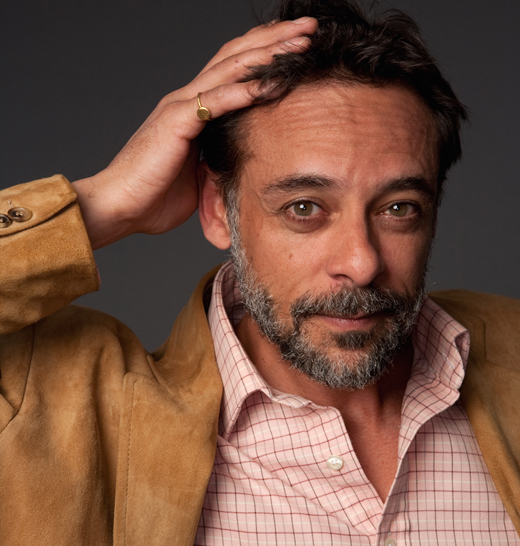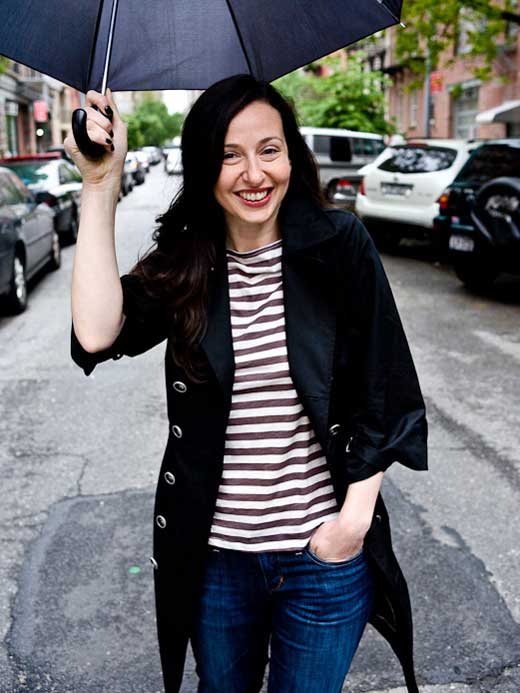
Ruba Nadda/Photo by Leslie Hassler
Canadian writer/director Ruba Nadda was holding her breath when her film Cairo Time had its U.S. premiere during the Tribeca Film Festival. Would an American audience appreciate the subtlety of her film? Her audible sigh of relief was drowned out when the audience broke into whoops and applause. Nadda needn't have worried. Cairo Time won Best Canadian Film at the Toronto International Film Festival in late 2009. Did that win surprise her? "Absolutely. I'd never won anything in my life, and the award came out of nowhere." The film's main character is a woman and yes, there's a love interest. Does that make it a chick flick? No, that's too dismissive for this British-feeling serious film. Plus both men and women say they loved it.
The plot occurs over three weeks in the life of Juliette Grant, played by Patricia Clarkson (Elegy, Vicki Cristina Barcelona). She's a Canadian woman with grown children and a drifting marriage. She leaves her job to vacation with her U.N. envoy husband in Cairo, in hopes of rekindling some of the passion they've lost. But after she arrives, her husband cancels. His work takes him elsewhere. While Juliette is sad about this news, we detect her sadness is long-standing. Knowing the streets of Cairo to be nearly impassable for unveiled women, Juliette's husband sends his former bodyguard, Tarek Khalifa, to protect her during her Cairo stay. Tarek is polite, attentive, and increasingly interested in Juliette.

Alexander Siddig/Photo by Leslie Hassler
Alexander Siddig (Prince Nasir in Syriana; Dr. Bashir in Star Trek episodes) plays this character deftly. How did Nadda choose him? "I do my own casting, and I feel the eyes are the most important feature. So I look at a person's eyes - for something in the eyes. When I see it, I know it. Alexander had that look, so I knew he was the one." Yes, Siddig's eyes express empathy for the person he's engaging. See for yourself. And Patricia Clarkson, was it in or out of character for her to play someone so soft-spoken? Nadda explained, "In real life, Patty's fiery, with so much energy, a powerhouse of a voice. But after we talked about the character in depth, she said she got it and could soften herself to fit the role."
A lot isn't actually said but implied by Nadda's use of tone, temperament and timing. The characters are quiet and hesitant. They stand out starkly because Nadda chose a background of noise and fast movement. Rapid-speaking Egyptians and motored vehicles are prolific in this ancient city. About her story and story-telling technique, Nadda said, "I wanted the feeling to be one of restraint. The film mine is most often compared to is Brief Encounter." She gives audiences hints, not answers. And that contributes to the tension in this film. We become intimate with the two characters, yet we can only guess (and hope) they will eventually be happy, together or not.

Ruba Nadda/Photo by Leslie Hassler
Nadda, 37, is a friendly Syrian-Canadian raised in Montreal, which she describes as "artistic, romantic, and wonderful." She visited Cairo with her parents as a teenager, returning 10 years later with her sister. (Canadians travel abroad much more than Americans do.) She confided, "Cairo was so different, so compelling. I felt a special bond with it and knew I'd find it again. And no, I didn't have a love interest there."
She traces her interest in film to having started writing stories at age 14. Studying literature at York University, she graduated, then moved to Toronto to work in film and television. How did she choose the wonderful Arabic music for this, her first big feature? "Music is very, very important for me in a film. Since I knew I wanted Arabic music, I began searching for a composer to do the sound track. Since this film is a Canadian-Irish co-production, I was meeting Irish people, and someone suggested Niall Byrne. I heard some of his ideas and loved them. He and I worked well putting this film and music together, yet we only met face-to-face last month."
And how did she choose the cinematographer, since critics call this film "visually gorgeous"? You feel you've seen parts of Egypt in a way no other film has shown them. "I chose Canadian cinematographer Luke Montpellier because I've worked with him for the past 10 years. We work well together. We sat down two months before shooting and worked out every single shot." Ah, a deliberate woman who knows what she wants and how to get it. Add to that a fond "good luck, Ruba."